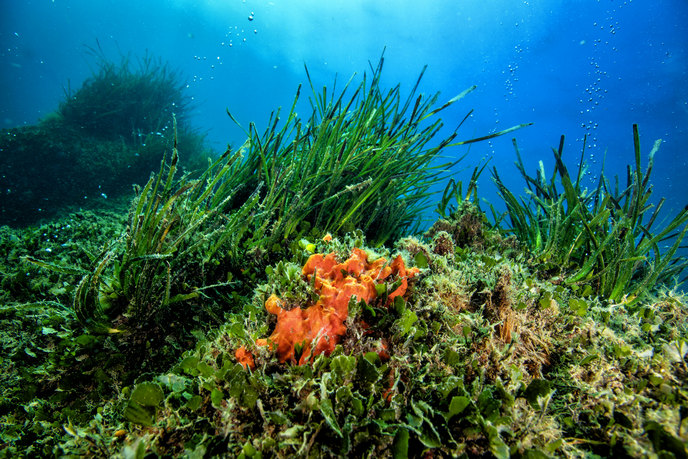Getting down to the business of marine ecosystem restoration in European seas and beyond
The clearly detrimental impacts of human activity on terrestrial ecosystems have spawned flourishing research, outreach and policymaking related to their preservation and restoration. Marine ecosystems and their degradation are much less obvious to the average person. However, European marine ecosystems are being lost and degraded at an alarming rate due to a combination of over-exploitation, pollution, invasive species and physical damage together with a changing climate. Ecosystem restoration, when combined with a reduction of pressures, can be an efficient and effective NBS to the problem. The EU-funded MERCES project has energised the nascent field of NBS for marine ecosystem resilience, the focus of numerous international and European initiatives such as the United Nations Development Programme’s Sustainable Development Goals and the new EU Biodiversity Strategy for 2030.
No two are quite the same
Marine ecosystems, like their terrestrial counterparts, reveal a tremendous diversity. MERCES has explored the potential of restoration actions in shallow soft and hard bottoms, including mesophotic habitats and deep-sea habitats across Europe from Norway to Turkey. According to project coordinator Roberto Danovaro and scientific project manager Cristina Gambi: “We have focused on the most fragile and vulnerable European habitats, including seagrass meadows, macroalgal beds and kelp forests, coralligenous outcrops and cold-water corals, canyons, seamounts and fjords in 25 different pilot areas. More than 20 restoration protocols have been tested in this first-of-its-kind multiregional, multi-habitat approach aiming to support upscaling of marine restoration across Europe.”
Good for the environment, societies and businesses
Actions promoting and inspiring policy initiatives and providing legal frameworks should help put restoration business on the biodiversity and NBS agenda. Danovaro states: “MERCES involved public, private and industrial stakeholders in new blue growth opportunities. The MERCES Business Club boasts more than 350 members representing all relevant stakeholders, highlighting the growing interest in NBS for marine ecosystem restoration. It provides tools like industry-focused newsletters and webinar series highlighting the economic and business opportunities of marine restoration.” The MERCES Business webinars attracted more than 900 views worldwide in March 2020 alone and have been included in the webinar repository of the Society for Ecological Restoration. Public engagement has been a MERCES priority. Gambi continues: “In addition to workshops and European Researchers’ Nights, we have conducted citizen science and ocean literacy events for young students, and training and summer schools to test different restoration protocols.” The consortium has produced more than 60 publications so far, including papers in world-class journals such as Science and Nature Ecology & Evolution, which foster discussion of the multiple implications of marine restoration in terms of policy, economy and wellbeing.
Moving forward under the sea
MERCES has proved that marine ecological restoration is not only feasible but should be encouraged in the context of policies, economic incentives and new job opportunities, and it has clearly identified the methodologies for developing a restoration business. Outcomes support the European Green Deal and its new Biodiversity Strategy. Globally, they contribute to the United Nations’ initiatives Decade on Ecosystem Restoration and Decade of Ocean Science for Sustainable Development, both beginning in 2021. Danovaro and Gambi conclude: “The MERCES project has opened new frontiers for ecological restoration of marine ecosystems in Europe and beyond to help and support the transition of our societies to a sustainable future.” A story map including beautiful underwater photos should inspire us all to get on board the important challenge of restoration of ecosystems under the sea.
Keywords
MERCES, restoration, ecosystem, marine, habitat, sea, biodiversity, ecological, cold-water corals, seagrass meadow, macroalgal, kelp, Society for Ecological Restoration, nature-based solutions (NBS), European Green Deal



